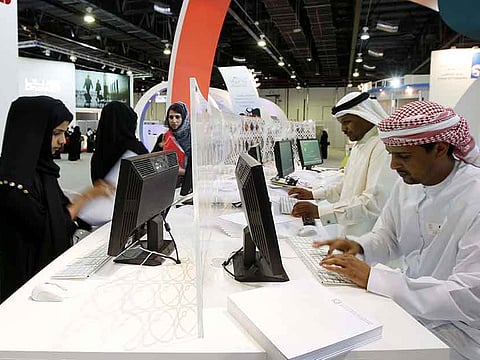Why the Gulf needs a change in its work ethic
Better balance needed between local and foreign worker participation

Like any other European country, Spain suffered the implications of the global financial crisis.
However, after an arduous period, it managed to surmount the obstacles and recover its economic clout.
This in fact was achieved through many factors — at the forefront of which comes the financial support given by the European Union (EU) and the International Monetary Fund (IMF) as well as austerity policies adopted by the Spanish government, which led to a sharp reduction in government spending and deficit.
Spain subsequently achieved results better than its counterparts in the EU, many of whom are still experiencing serious troubles, such as Greece and Italy.
The first was afflicted by frequent and meaningless strikes while the latter’s burden continue to be its labour force and their lackadaisical attitude.
In Spain, the situation is completely different.
Modesty, love of work
You will find modesty, the love of work, and dealing with others in a tolerant spirt, starting from the king and royal family to normal workers in public services.
These, indeed, are some of the key reasons why Spain managed to emerge stronger and overcome all obstacles related to their work ethic.
Wherever you go, even in hotels, restaurants, tourism facilities, you will see most of the workers, if not all of them, are Spanish — which we’ll not see in most of European countries.
It is true that while some workers come from Eastern Europe, Latin America, the Maghreb countries and even from Britain and France, the Spanish manpower is dominant.
But foreign workers are treated fairly and without any discrimination.
So the issue is not related to formal work values but to their significant results, which would contribute to reducing the number of those unemployed and supporting the national economy with the required financial sources.
Balance of payments
It also underpins the balance of payments situation through reducing remittances to outside of Spain.
That would also contribute to increasing savings and small private investments, of huge importance to improving economic conditions.
The Spanish economy enjoys substantial privileges, not least the charming nature of its people.
These should be enough to achieve further improvements in the coming years.
Other European countries still affected by the crisis and mainly dependent on foreign workers can take lessons from the Spanish experiment, especially the respect for work and irrespective of its nature.
The Spanish experiment is also of great importance to GCC nationals whose outlook to work values have been affected after the rise in oil revenues.
The professions of their fathers and ancestors became unwelcome and even played down — in turn posing a serious threat and increasing the financial burden as well as unemployment rates and foreign remittances.
Striking a balance
Although the outlook for some business have slowly begun to change in the Gulf, there has to be an objective and correct vision.
Changing work values will definitely generate positive economic results and strike a balance between local and foreign workers representation.
This would be a decisive step towards the post-oil era and will gain workers the respect and appreciation of society.
Yet that will need great efforts to effect such a change in the culture of work, which still wears the burden of the years of oil boom.
Dr Mohammad Al Asoomi is a UAE economic expert and specialist in economic and social development in the UAE and the GCC countries.



